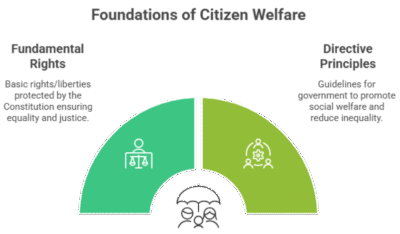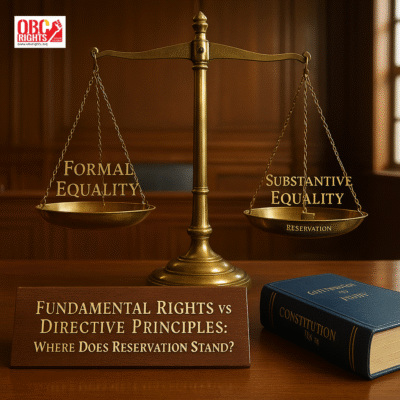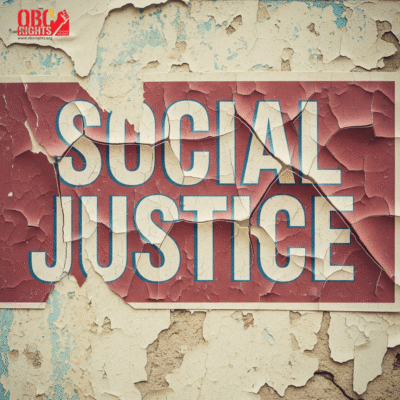The Indian Constitution is a unique document that tries to balance individual freedoms with the needs of society as a whole. Two key components of the Constitution are Fundamental Rights and the Directive Principles of State Policy. Understanding these concepts is key to grasping the basis of reservation policies and why they often spark debate.
What Are Fundamental Rights?
Fundamental Rights are like basic freedoms every citizen enjoys. They are protected by the Constitution, and courts make sure no one violates them. For example, the right to equality ensures that no one is unfairly treated or discriminated against because of their caste, religion, gender, or where they come from.
What Are Directive Principles?
Directive Principles, unlike Fundamental Rights, are guidelines that direct the government on how to promote social welfare. Although these principles are not legally enforceable, they serve as a moral compass for policymakers to reduce poverty, improve education, and promote social justice. They focus on helping marginalized communities who have historically faced discrimination and exclusion.

The Role of Reservation
Reservation is a policy that reserves a certain percentage of opportunities in education, jobs, and political positions for socially disadvantaged and underrepresented communities. The primary objective is to provide equal opportunities and uplift these communities, aligning with the Directive Principles’ goal of social justice.
The Debate: Fundamental Rights Vs Directive Principles
A common question is whether a reservation violates the Fundamental Right to equality. After all, if the Constitution guarantees equality, why should some groups receive special treatment? This dilemma arises because equality can be understood in two ways: formal equality means treating everyone exactly the same, whereas substantive equality seeks to ensure everyone has an equal chance to succeed.
Fundamental Rights protect individuals from discrimination, but Directive Principles urge the state to actively work towards uplifting disadvantaged groups. The Supreme Court has recognized this balance, affirming that reservation is a constitutionally valid means to achieve social justice without undermining the essence of equality.
How Reservation Balances Both
Reservation is not about giving unfair advantage; it’s about correcting systemic inequalities. It supports the Directive Principles’ goal of social upliftment and makes the promise of equality in Fundamental Rights meaningful by ensuring marginalized communities can access opportunities they were historically denied
The Caste-Based Census: A Turning Point
The demand for a caste-based census has gained momentum because reservation policies cannot be effectively fulfilled without accurate and up-to-date data. Knowing the exact population and socio-economic status of different caste groups is crucial to ensure that reservation benefits are fairly distributed and reach those who need them most. Without this data, reservation policies may be based on outdated information, making it difficult to address current inequalities and achieve true social justice.

Why It Matters
Reservation is not just about numbers or quotas. It is about correcting historical wrongs and making society more inclusive. It helps talented individuals from weaker sections get education and jobs, which benefits the whole country in the long run
In conclusion, reservation policies reflect a thoughtful balancing act between protecting individual rights and promoting social justice. They embody the spirit of India’s Constitution by striving to create a fairer and more equal society for everyone.



